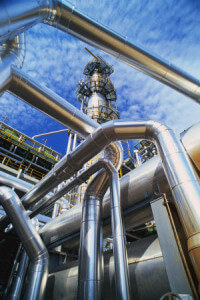Predictive Maintenance vs Preventive Maintenance in Plant Design
When you’re running a facility, you want to make sure that it runs smoothly and will continue to do so, especially when you’re dealing with something that can be potentially disastrous if it malfunctions, such as gas pipeline compressors. You’ll explore choices such as the great debate of predictive maintenance vs preventive maintenance in plant design.
Preventive Maintenance
 One preventive measure in place for compressor units is an alarm or a fault condition that protects the equipment from damage. However, they work by sounding when the alarm is out of service and personnel have to deal with the situation. At this point, it’s probably too late.
One preventive measure in place for compressor units is an alarm or a fault condition that protects the equipment from damage. However, they work by sounding when the alarm is out of service and personnel have to deal with the situation. At this point, it’s probably too late.
Preventive maintenance creates scenarios that are more reactive, so there isn’t a lot of time to prepare in the event that something does happen and personnel must act quickly.
And there may not always be backup or standby to replace a malfunctioning piece of equipment, which will cause additional bottlenecks.
Predictive Maintenance
Predictive maintenance relies on techniques, inspections, and tests that will ensure products won’t fail any time soon. This system monitors equipment while it’s actively in service to give personnel a better alert if problematic conditions are detected. Faulty products will be pulled right away to avoid results that could put your facility in a crisis.
This approach also provides more flexibility in choosing when to service equipment to maximize efficiency. It allows your personnel to repair something during downtime when there will be less impact on overall operations.
It’s important to remember that predictive maintenance must be performed while the equipment is in normal operation without process interruption. This ensures that the equipment is being evaluated during its regular functions so any problems are easily identifiable.
The use of technology during predictive maintenance can also determine the presence of a defect that can’t be identified otherwise.
About CPV
 CPV Manufacturing serves the following industries: shipbuilding, petrochemical, and industrial gases. In these industries, valves and fittings must be high quality and perform efficiently and accurately. A faulty product could result in disastrous damage, and that’s why companies in these industries rely on CPV for their non-failing valves and fittings.
CPV Manufacturing serves the following industries: shipbuilding, petrochemical, and industrial gases. In these industries, valves and fittings must be high quality and perform efficiently and accurately. A faulty product could result in disastrous damage, and that’s why companies in these industries rely on CPV for their non-failing valves and fittings.
The US Navy counts on CPV to equip their vessels with valves and fittings that meet government standards. CPV Manufacturing’s Quality Management System is certified in the areas of Design, Material, Fabrication, and Testing and has been approved to meet the requirement of MIL-I-45208, SUBSAFE Level 1, EB 2678.
CPV works in the company and with partners to achieve the common vision and look into the future and inside the present to make the company, products, employees, and customers better.
Contact us to learn more about CPV Manufacturing and their products.

